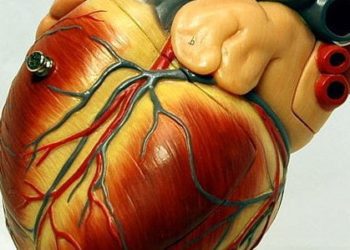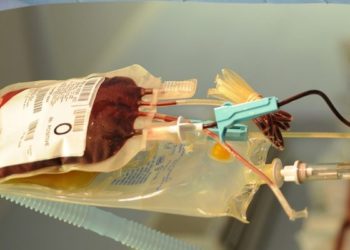Blood transfusions linked with increased risk of adverse cardiac events following percutaneous coronary intervention
Image: PD
1. The overall red blood cell transfusion rate among 1,431 US hospitals was 2.14%.
2. Blood transfusions in percutaneous coronary intervention patients was associated with increased risk of in-hospital events such as myocardial infarction, stroke and death.
Evidence Rating Level: 2 (Good)
Study Rundown: Patients receive red blood cell transfusions for various reasons including anemia and bleeding. While they can be lifesaving, they are also associated with severe adverse events such as acute hemolytic reactions and transfusion associated acute lung injury. One subset of patients who frequently receive transfusions are those who underwent percutaneous coronary intervention (PCI) for acute myocardial infarction. Currently, there are no guidelines for the administration of transfusions in this patient population. Therefore, this study set out to understand the relationship between blood transfusions and PCI by examining adverse effects as well as transfusion guidelines.
This study revealed variation in transfusion medicine practices for patients undergoing PCI in the United States with more aggressive thresholds for transfusion than others. Most importantly, transfusions in PCI patients were associated with an increased risk of in-hospital adverse events such as myocardial infarction, stroke, or death. Strengths of this study include its large sample size chosen from a great variety of hospitals. This study is limited by its inability to determine the causality of the relationship between transfusions and adverse outcomes. However, it has laid the groundwork for further research geared at discovering the exact cause behind this phenomenon and potentially developing transfusion recommendations.
Click to read the study, published today in JAMA
Relevant Reading: Frequency, predictors, and appropriateness of blood transfusion after percutaneous coronary interventions
In-Depth [retrospective cohort study]: This study examined 2,358,711 patients from 1,431 US hospitals. The overall transfusion rate was 2.14%. Those patients who were transfused were more likely to be female, have multiple comorbidities such as diabetics and end-stage renal disease, and/or required the use of an intra-aortic balloon pump. When patients without post-procedure bleeding event were transfused they had an OR of 8.49 for stroke, 4.96 for death, and 2.38 for myocardial infarction (MI). Also, patients with a post-procedure hemoglobin of ³ 15g/dL without post-procedure bleeding had an OR of 10.06 for an adverse outcome (either MI, stroke, or death). Further, regardless of bleeding events and variable hemoglobin levels in some patients, transfusion was associated with increased risk of in-hospital MI (OR 2.60), stroke (OR 7.72), and death (4.63).
More from this author: Reducing surgical complications may increase costs, Protected sleep periods improve intern alertness and sleep duration, ADHD medication decreases rates of criminality in ADHD patients, Low dose aspirin shows net clinical benefit in patients with first unprovoked venous thromboembolism, Rare TREM-2 mutation implicated in Alzheimer’s Disease
©2012-2014 2minutemedicine.com. All rights reserved. No works may be reproduced without expressed written consent from 2minutemedicine.com. Disclaimer: We present factual information directly from peer reviewed medical journals. No post should be construed as medical advice and is not intended as such by the authors, editors, staff or by 2minutemedicine.com. PLEASE SEE A HEALTHCARE PROVIDER IN YOUR AREA IF YOU SEEK MEDICAL ADVICE OF ANY SORT.






![Maternal cell-free DNA sequencing superior to standard aneuploidy screening [CARE Study]](https://www.2minutemedicine.com/wp-content/uploads/2014/02/47-karyotype-75x75.jpg)
